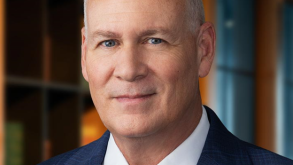What is your role?
I am Global Senior Trademark Counsel with Halliburton Energy Services, Inc., and I handle trademark and copyright work for the company worldwide. I’ve been here 15 years. Previously I worked with Dresser Industries before the merger with Halliburton. Before that I worked at a computing company.
I am also this year’s chair of the IP Section of the Dallas Bar Association, which has about 650 members. INTA has kindly given us a welcome table in the Convention Center and we are giving Annual Meeting attendees a big Texas welcome!
How big is your team?
We have a relatively small trademark team comprising me, a senior legal assistant and an administrator, all here in the same office. We also have eight full-time patent attorneys—two in Carrollton, three in Houston and three in Duncan, Oklahoma. So it is a relatively small IP department.
We have approximately 3,000 filed and registered trademarks, and several thousand more common law marks that we claim rights to. It is a large portfolio to keep track of, so it does keep us busy.
The copyright work involves a lot of software that we use. We file for copyrights in the U.S. Copyright Office and there are some general issues that come up. There are also opportunities to license materials for presentations and training etc.
Typically we handle U.S. filing and prosecution work in-house. On a few occasions we will send work to outside counsel for an opinion, for example if there is a hearing at the U.S. Trademark Trial and Appeal Board or if the importance of the mark rises to a very high level. For overseas work, we use outside counsel but make decisions here and give them instructions.
We have many different brands that are prominent but Halliburton itself is the most prominent. A lot of our brands have come from acquisitions or over many years of use.
What challenges do you face in protecting your IP?
The challenges are similar to most other companies—policing and enforcing marks, sending cease-and-desist letters, TTAB cases. We try to avoid litigation but sometimes it is unavoidable.
We try to educate our workforce to recognize issues in the marketplace. They are the people that will typically come to me and say they saw a website or some material using one of our brands. One of the things we have done is to set up an internal database which is accessible to every employee worldwide, showing all our trademarks and the status of each one. So if there’s a question, employees can see if the mark is filed or registered, how long we have had it and so on. This is a great benefit in educating people such as marketers and technical writers about what rights we have and how they can be used.
Is the Internet a big challenge?
It really is a very big challenge. There are always issues relating to protecting the brand online, as well as domain name issues, illegal downloading of software and rogue websites selling counterfeit products.
How big a problem it is depends on where it is. Some areas of the world are a lot easier to protect than others, especially for domain names. We have been very successful in getting sites that may be posting pirated software taken down.
What do you look for in outside counsel?
One word to sum it up is: responsiveness. If we use outside counsel, it is either because the work is very complex or time-consuming so I look for outside counsel that will be responsive. I don’t have time to follow up on everything and I expect them to keep me posted. For example, I would want an office action back within 60 days so that it moves towards the top of the list, rather than six months which means it will be at the bottom.
There are many competent firms and competent lawyers out there that can handle a variety of work, but not so many that are competent and responsive. Some firms are not as good as they could be in this respect and we are less likely to use them.









